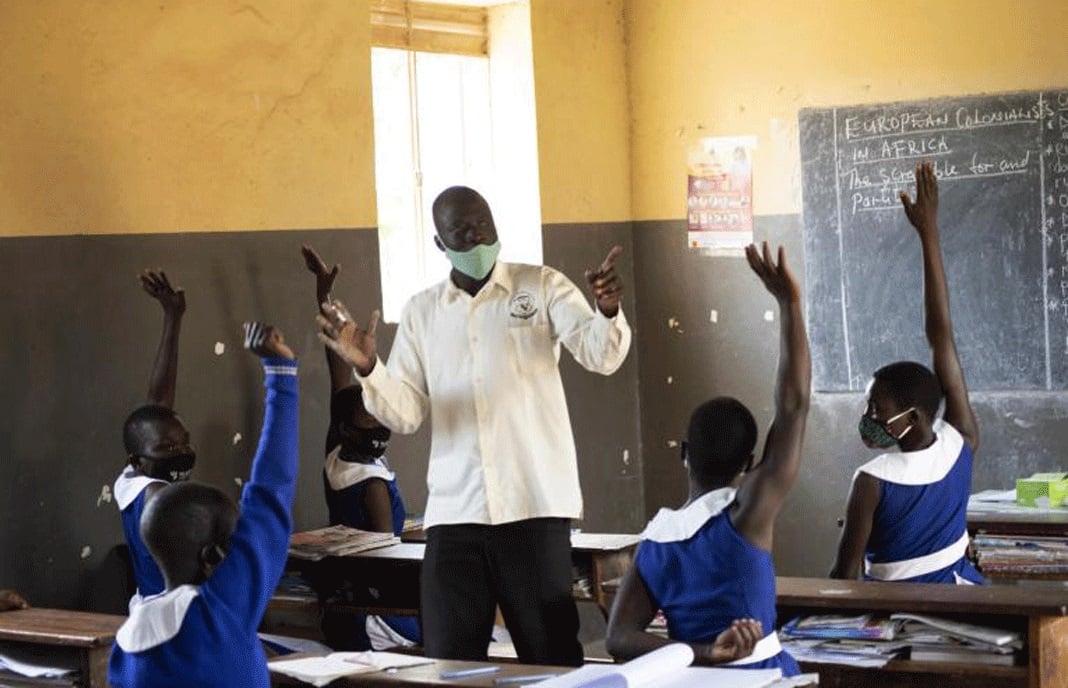Covid: Hospitals stuck with uninstalled ICU equipment

Some of the Intensive Care Unit beds stored at the conference hall of Gulu Regional Referral Hospital. PHOTO | MARTIN OKUDI .
What you need to know:
- In answer to question on whether patients buy their own medicines, Dr Byanyima said such would be in exceptional circumstances such as drug stock-outs due to delayed delivery by the National Medical Stores, when patients with means demand specific medicine brands or when a patient is resistant to particular medication.
Regional referral hospitals are stuck with Intensive Care Unit (ICU) equipment meant for treatment of critically-ill coronavirus patients because the health facilities lack structures in which to install them.
Dr Florence Oyella, the acting executive director of Gulu hospital, told this newspaper that renovation of the structure for the ICU at the facility is expected to be expedited under Ministry of Health’s “push system”, but there is no completion timeline.
“We have already identified staff who are waiting to be trained (on treating Covid-19 patients), but the renovation has not taken place. I fear this may delay installation of the much-needed equipment,” she told this newspaper last week.
The Mbale Regional Referral Hospital Executive Director, Dr Emmanuel Tugaineyo, said the building in which they plan to install the ICU equipment at the facility is still under construction.
In Arua, officials of the regional referral hospital that serves West Nile region, are still looking for space to set up 10 ICU beds that the Ministry of Health donated weeks ago. The beds are currently being kept in a store.
Officials at other regional hospitals echoed similar concerns despite claims by Mr George Otim, the commissioner of Health Services Infrastructure at the Health ministry, that they have established 143 ICU beds at 14 regional referral hospitals.
“These 143 ICU beds installed in the facilities are fully functional,” he told this newspaper in a separate interview.
News of lack of ICU facilities at many regional referral hospitals, comes at a time when the country is experiencing a surge in Covid-19 infections and fatalities.
Uganda is currently at stage four of the pandemic, marked by widespread infections in communities and inability to trace sources.
The confirmed coronavirus infections in the country as of December 26 totalled 33,811, with 248 deaths and 11,180 recoveries.
The capacity gaps upcountry has meant the burden of treating critically-ill Covid-19 patients is piled on health facilities in Kampala including Mulago National Referral Hospital, which only has eight ICU beds.
With demand outstripping supply, private hospitals in the city now require coronavirus patients to deposit at least Shs5 million to secure ICU admission, with treatment costing between Shs3.5 million and Shs10 million per day.
“The hospitals are overstretched and I don’t see it changing,” Dr Denis Kimalyo, the executive director of Uganda National Association of Private Hospitals (UNAPH), said.
The privately-owned Norvik Hospital on Bombo Road in Kampala was by last week one of the few private hospitals with ICU beds, each costing upwards of Shs5 million per day for treatment of Covid-19 patients in critical condition.
The other city hospitals with ICU capacity include Case Hospital, Victoria Hospital and International Hospital Kampala while Rubaga Hospital and St Francis Hospital, Nsambya have High Dependency Units (HDUs)for moderately sick coronavirus patients.
The exact number of ICU beds in the country is still unclear. But in a survey report released in January, two months before Uganda confirmed its index case of the pandemic, Dr Patience Atumanya of Makerere University College of Health Sciences said Uganda’s ICU capacity at both public and private health facilities totalled 55 beds in 12 ICUs.
The crisis of ICU beds has triggered fierce competition between relatives to secure admission for Covid-19 patients, resulting in deaths due to delays.
However some relatives of Covid-19 patients, who spoke to this newspaper on condition of anonymity, said only those with money or connection to powerful offices can have their way.
One said they had been informed that ICU beds at Mulago Hospital were full, but they were assigned a bed for their patient following a telephone call to the hospital management by a high-ranking official of the Health ministry.
Another said his sister died in November after they failed to secure an ICU bed at Mulago National Referral hospital.
“My patient was in the HDU of Mulago Hospital and she needed emergency upgrade to ICU, but the one at Mulago Hospital was full,” the relative said.
This reporter couldn’t independently verify this claim.
However, Dr Rosemary Byanyima, the deputy director of Mulago Hospital, said they are overstretched due to a large number of patients seeking treatment.
It is unclear why the rising demand for curative care for Covid-19 patients has caught the government unprepared when Shs42.3 billion was allocated back in April to ostensibly help build capacity for the worst case scenario of the pandemic.
Dr Charles Olaro, the director of Clinical Services (curative) at the Ministry of Health, confirmed that the designated hospitals for treating Covid-19 patients are overwhelmed due to a surge in patients.
In answer to question on whether patients buy their own medicines, Dr Byanyima said such would be in exceptional circumstances such as drug stock-outs due to delayed delivery by the National Medical Stores, when patients with means demand specific medicine brands or when a patient is resistant to particular medication.
About ICU
According to Dr Patience Atumanya of Makerere University, an ICU comprises a bed, a patient monitor, a mechanical ventilator, a suction machine, critical care nurses, an anaesthesiologist and physicians in the vicinity.
ICU require to be staffed round-the-clock with intensivists, anaesthesiologists, critical care nurses and physicians, according to Dr Henry Mwebesa, the director general of Health Services.




